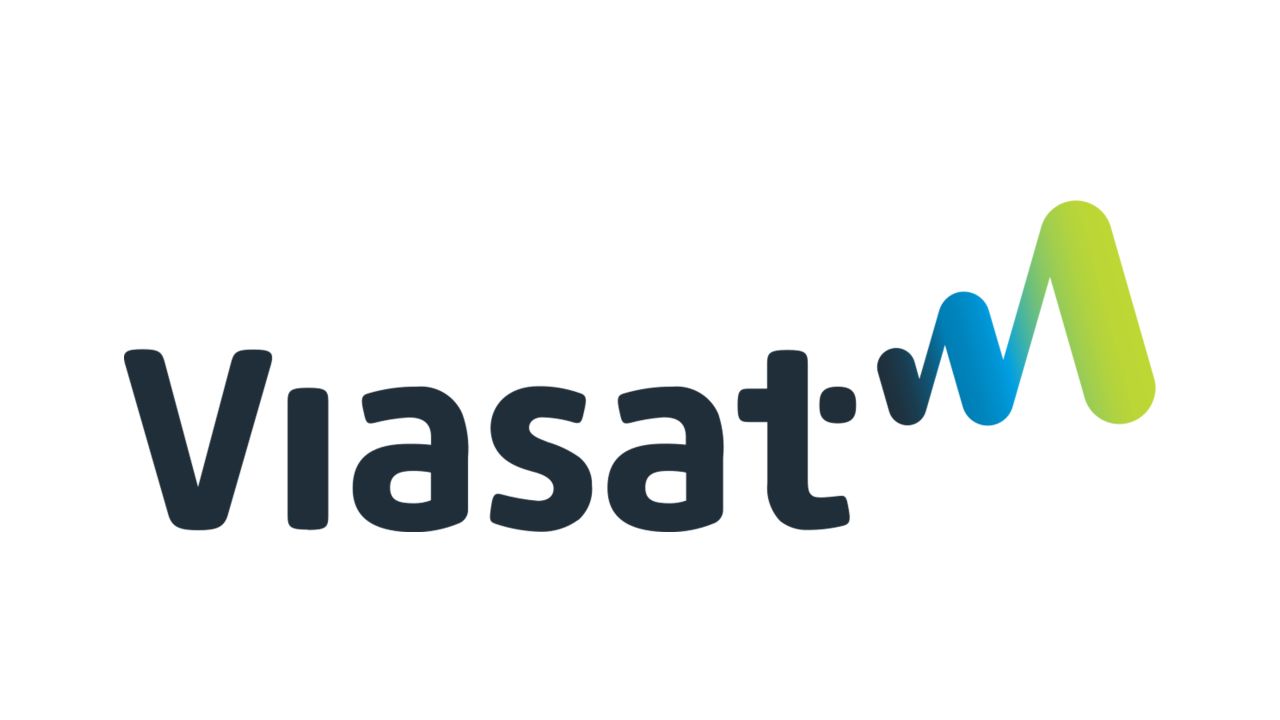Satellite internet is quickly growing in popularity. If you live in a rural area, you may be considering it as an alternative to cable, fiber, DSL or other options that are not available to you. Fortunately, several satellite internet providers can give you a reliable connection.
Our picks
EarthLink: Best satellite internet
HughesNet 2: Best for nationwide availability
Viasat 4: Best for bundling services
EarthLink: Best for satellite internet

Star rating: 4.4 out of 5
Price: $49.95 - $89.95
Speed: Up to 100 Mbps
Data cap: Yes
Why we picked EarthLink
EarthLink offers a flat-fee pricing structure that can make it easy to budget for your internet service. Its rates are affordable compared to those of other satellite internet companies, which are well above $100 per month. Available in 48 states, EarthLink is one of the most widely available satellite internet providers and boasts about its internet speeds — up to 100 Mpbs — in rural areas.
However, EarthLink’s lower monthly fees are offset by its installation cost and $200 early contract termination fee. The company isn’t transparent about what it costs to install satellite internet services. Still, it does claim that “the price of EarthLink Satellite Internet helps balance out those initial startup costs.”
Who should use EarthLink
If you’re looking for the best deal on satellite internet, EarthLink should be on your radar. If you live in the country with limited internet access, EarthLink satellite services may be the one for you.
Pros
- Easy to track your data usage on the EarthLink app
- Offers EarthLink Protect, a cybersecurity plan that can help you reduce the risk of viruses and other common online threats
- EarthLink Guardian makes parental controls easy
Cons
- Not offered in Alaska or Hawaii
- Works with other ISPs, so data outages are not in Earthlink’s control
- Expensive early termination fee of up to $200
HughesNet: Best for nationwide availability

Star rating: 4.3 out of 5
Price: $49.99 - $124.99
Speed: Up to 100 Mbps
Data cap: No
Why we picked HughesNet
HughesNet is known for its wide coverage and offers satellite internet in all 50 states, including the District of Columbia, Puerto Rico and the Virgin Islands. Its plans are relatively affordable, at least for the first year. Most HughesNet satellite internet plans start at just $49.99 per month, but the price will increase after the first year of the required 24-month contract.
HughesNet offers unlimited data and a bonus that gives you access to high-speed data at no extra cost. The HughesNet Bonus Zone is 50 GB of extra high-speed data the company gives you during off-peak hours (2:00 a.m. to 8:00 a.m. your local time). We recommend scheduling downloads of updates, games, movies or any large file to start during the Bonus Zone hours.
Who should use HughesNet
If you’re having trouble finding a satellite internet company that serves your area, HughesNet’s wide service range is your best bet. HughesNet offers satellite internet service in Alaska and Hawaii unlike other providers on our list.
Anyone who works a remote night shift or games into the morning’s wee hours might consider HughesNet for its free 50 GB of extra high-speed data during off-peak hours.
Pros
- Video Optimizer automatically adjusts data rates when you stream videos to ensure high quality.
- You get 50 GB of extra data for free between 2 a.m. and 8 a.m.
- Very affordable for the first year
Cons
- Requires a 24-month contract
- Additional cost for more than two devices
- Expensive termination fees of up to $240
Viasat: Best for bundling services

Star rating: 4 out of 5
Price: $49.99 - $199.99
Speed: Up to 150 Mbps
Data cap: No
Why we picked Viasat
If you live in one of the 12 states where Viasat services are available, you can benefit from its no-contract policy, unlimited high-speed internet and speeds up to 150 Mbps. With Viasat, you can customize your plan through various add-ons, such as Viasat Voice (home phone service), Viasat Shield (online security service), EasyCare (extra support), Office Hours (use popular business programs without using your high-speed data) and DISH TV.
However, Viasat isn’t entirely transparent with its pricing. Though it advertises low $49.99 plans, the fine print reveals that Viasat gives you a discount on your internet plan for the first three months. After that, your monthly rate will increase — anywhere from $20 to $100 — for the remainder of your contract.
Who should use Viasat
Viasat can be a solid choice if you’re looking for services to bundle with your satellite internet, like phone and television. This provider also has slightly faster internet speeds than others, so it may be a good choice for remote workers or larger households.
Pros
- Internet speeds up to 150 Mbps
- No data overage fees
- Available in all 50 states
Cons
- High-speed data cap limits how much high-speed data you can use
- Price increase after three months
- No self-installation option
Our picks at a glance
|
Our rating (out of 5)
|
Price
|
Speed
|
Company reputation
|
|
|---|---|---|---|---|
| EarthLink | 4.4 |
$49.95 - $89.95 |
Up to 25 Mbps |
Fair |
| HughesNet | 4.3 |
$49.99 - $124.99 |
Up to 100 Mbps |
Excellent |
| Viasat | 4.0 |
$49.99 - $199.99 |
Up to 150 Mbps |
Good |
What didn’t make the cut
While it offers unlimited data, no contracts and the fastest speeds for satellite internet? (up to 220 Mbps), Starlink didn’t make our list of best satellite internet providers. That’s because, with equipment fees of $599 to $2,500 and monthly prices starting at $120, it’s significantly more expensive than the providers on our list. With its Roam plan, you can work remotely anywhere — nationally or internationally — for $150 to $250 per month. Starlink is great for RVers, boaters, van-lifers and travelers. But if you’re in the market for affordable home internet, there are better options.
What is satellite internet?
Satellite internet is a wireless online connection powered by satellites orbiting the Earth. Here’s what to know about it:
- Satellite connection: Your internet service provider (ISP) uses a satellite connection to transmit signals between your user dish, satellites orbiting in space and ground stations.
- Long-distance transmission: Signals cover vast distances between satellite and ground stations, causing higher latency than terrestrial connections.
- Rural connectivity: Satellite internet is primarily used in rural or remote areas lacking traditional internet infrastructure.
- Weather dependency: Weather conditions like heavy rain or snow can affect your connection quality, which interfere with the satellite signal.
- Data caps and limitations: Many plans impose data caps or bandwidth limits, restricting the amount of data you can consume within a specific period.
How to choose a satellite internet provider
As you shop around for a satellite internet company, keep the following in mind:
Availability
While many satellite internet companies have expanded their reach over the past few years, finding coverage may be more difficult if you live in an RV or a rural area with limited infrastructure. The good news is providers like HughesNet offer satellite internet everywhere in the United States.
Cost and promotions
Determine how much you want to spend on satellite internet each month. Keep in mind that you’ll likely have to pay more for satellite internet than other types of internet, such as fiber or cable.
It’s a good idea to look for promotions that make this expense a bit more affordable. EarthLink is the most budget-friendly provider on our list, but even ISPs like Viasat and HughesNet can be affordable for the first year.
Data allotment
Some satellite internet companies — like EarthLink — cap the amount of data you can use, which may be between 40 and 500 GB. If you exceed the data cap, you may incur an overage fee or be forced to settle for slower speeds until your next billing cycle. If you don’t want to worry about the amount of data you use, choose a provider with unlimited data, such as HughesNet or Viasat.
Speed
Speed and the number of devices you use in your home go hand-in-hand. For example, if you only use one device, you may be content with a slower speed than a household with ten devices running simultaneously. With satellite internet, you can expect speeds ranging from 25 to 150 Mbps, but ISPs such as Starlink offer even faster speeds of 220 Mbps. Satellite internet may be faster than DSL, but it does have a higher latency, which can mean more delays in your connection.
Pros and cons of satellite internet
As with any type of internet, satellite internet has unique advantages and disadvantages. Users will need to weigh whether the widespread availability of satellite internet and fast speeds in remote areas are worth the expense and susceptibility to bad weather, among other factors.
Pros
- Offered in rural areas: Since satellite internet relies on signals that beam from anywhere on Earth, it may be a good option for you, even in rural areas.
- Fast speeds are available: While satellite internet might not be as fast as fiber internet, you can still enjoy fast speeds of up to 220 Mbps, depending on your chosen plan and provider.
- Can enjoy unlimited data: Some providers offer unlimited standard data so you can use the internet as much as you want without paying extra fees.
Cons
- Expensive: Satellite internet plans are usually pricier than cable, fiber or DSL internet plans.
- Prone to bad weather: Poor weather conditions can cause spotty connections and outages with satellite internet as they weaken satellite signals.
- Might not support all online activities: Satellite internet may be ineffective for activities like video calls and video games due to lower speeds and higher latency, which means delays in the time it takes to transfer across the network.
How to optimize your satellite internet connection
While satellite internet doesn’t offer a perfect connection, there are things you can do to improve it.
- Make sure your dish is as close to your house as possible.
- Check it regularly to ensure it’s free of damage from weather and other environmental conditions.
- ?Place your modem in a well-ventilated area and your router in a central location in your home.
- It’s also worthwhile to install ad blockers and data compressors on your browser to ensure a smoother, quicker connection.
- If possible, you should also avoid using your internet during peak times when slower speeds are inevitable.
Satellite internet alternatives
If you decide that satellite internet isn’t a good option for your unique situation, consider these alternatives:
- DSL: DSL may come with your telephone line and offer a constant connection, but it isn’t available in remote areas where phone lines don’t reach you.
- Mobile hotspots: Mobile hotspots are a good option for those without access to a wired internet connection. This type of internet depends on cellular phone networks and can offer fast speeds as long as you live near a cell tower.
- Fixed wireless: Fixed wireless internet retrieves a signal from a local communication tower and may provide a reliable connection if there’s nothing in the way of your home and the tower.
- Fiber: Fiber, which may only be an option if you’re in a more urban area, uses fiber-optic cables to deliver lightning-fast speeds. However, its availability is extremely limited.
The future of satellite internet
According to a report by Grand View Research, the global satellite internet market is projected to hit 19.71 billion by 2030. It’s an up-and-coming option for individuals and businesses in rural areas where other options, like DSL and cable, are unavailable.
A rise in government subsidies and incentives will likely increase the adoption of satellite internet services. It’s important to note that while satellite internet is growing, supply might increase demand, at least for the next few years.
— Additional reporting by Alora Bopray
Methodology
To determine the rankings for internet providers, the CNN Underscored Home editorial team analyzed 22 companies, with each company’s star rating determined by a variety of metrics and subcategories, including:
















